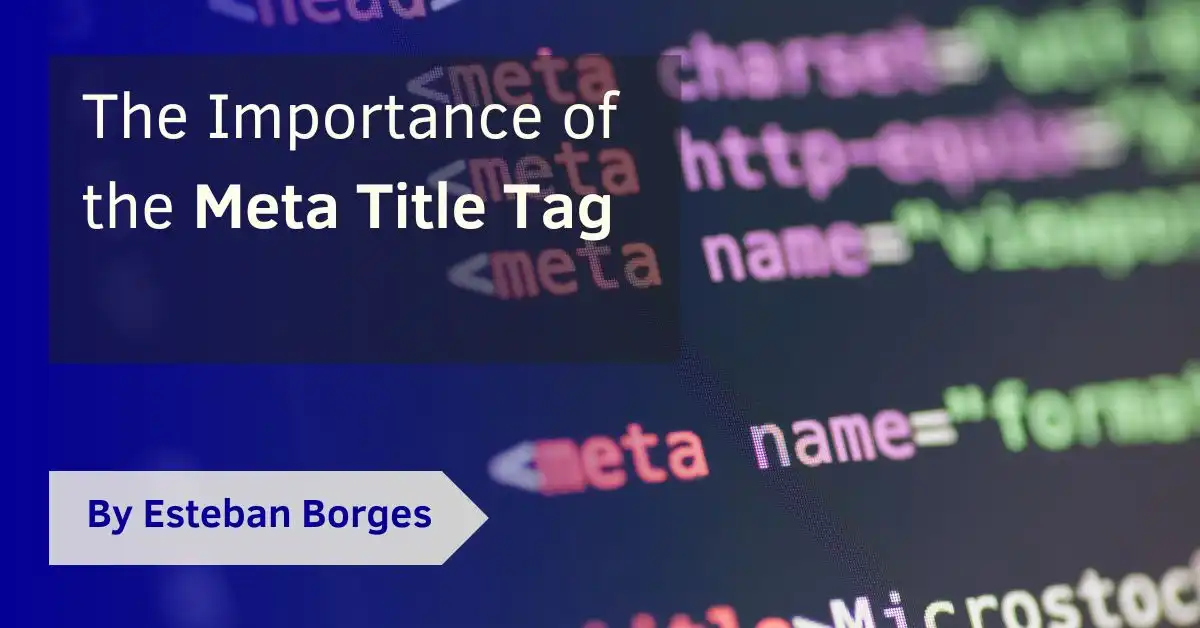The Essential Guide to Understanding Meta Keywords
Meta Keywords: these two simple words carry immense weight when it comes to your website’s SEO performance. However, understanding their role, how to use them effectively, and how they impact your SEO can seem like cracking a complex code. In this comprehensive guide, we’ll delve into this often-overlooked aspect, empowering you with knowledge and practical tips to take your website’s SEO to the next level.
Table of Contents
Understanding the Essence of Meta Keywords
Grasping the concept of these particular keywords is the cornerstone in our SEO expedition. But what exactly do we mean by them? They are specific terms or phrases that encapsulate the content of a webpage. These are the signals that search engines employ to grasp the nature of your page.
As you build your website, perceive these as the invisible clues that alert search engines about your content. They may not be seen by your site’s visitors, but for search engine algorithms, they are like glowing signposts directing towards pertinent content.
The Evolution of Meta Keywords
In the internet’s early stages, these keywords were highly valued. Web developers and SEO experts filled their web pages with them, aiming to attract search engines. However, this led to a decline in search result quality, prompting search engines like Google to devalue them in their ranking systems.
Today, even though they might not hold the significance they once did, they still perform a key function in summarizing your page’s content.
Differentiating Between Meta Keywords and SEO Keywords
Navigating through the SEO universe, you might question: How do these two types of keywords differ? Meta Tags are HTML code snippets that describe a webpage’s content but are not visible to users. These include the title tag, meta description, and of course, the specific ones we are discussing.
Despite their apparent similarities, SEO Keywords and these particular keywords are distinct. These remain hidden to the users, while SEO Keywords are fully visible to both users and bots, forming part of a comprehensive SEO strategy focused on content, link building, technical SEO, and much more.
The Importance of Meta Keywords
In the broad spectrum of SEO, why should these keywords command attention? The answer lies in their ability to succinctly communicate your content’s essence to search engines.
Although search engines may not heavily weigh them in their ranking systems anymore, they still utilize them to categorize and understand your page’s content. By optimizing them, you’re ensuring that your content is accurately interpreted and indexed.
Amplifying SEO Through Meta Keywords
Optimizing these particular keywords is akin to positioning your website for success. When you align the right terms in the right context, search engines are more likely to discover your site and classify it accurately.
Improving User Experience
Beyond their SEO advantages, these keywords also contribute to enhancing your website’s user experience. By employing precise and relevant ones, you’re facilitating the right users in discovering your content. This translates to less bounce rate and increased engagement for your site, a favorable scenario indeed! This is further supported by numerous usability studies showing the positive impact of proper keyword usage on user experience.
You might be wondering, how exactly do I use Meta Keywords? Using meta keywords effectively involves a thoughtful process of research, selection, and implementation.
Keyword Research
The first step in using meta keywords effectively is conducting thorough keyword research. This process involves identifying the keywords and phrases that your target audience uses to search for the type of content your site provides.
Meta Keyword Selection: Choosing the Best Keywords
Once you’ve identified potential keywords, the next step is to select the most relevant and powerful ones for your meta keywords. Remember, quality over quantity is key. It’s better to have a few well-chosen meta keywords than a whole slew of irrelevant ones.
Implementation: Placement and Optimization
The final step in using meta keywords effectively is their implementation. This involves placing them strategically within your meta tags and content. Remember, balance is key; overdoing it can lead to keyword stuffing, which search engines penalize.
Meta Keywords in HTML: A Practical Demonstration
Understanding the theory behind meta keywords is one thing, but seeing them in practice can make a world of difference. Here are a few examples of how meta keywords appear in HTML coding:
For a general website about gardening, the meta keywords might be inserted into the HTML like this:
<head>
<meta name="keywords" content="gardening, home gardening, garden tips, plant care">
</head>Here, the meta keywords “gardening,” “home gardening,” “garden tips,” and “plant care” provide a broad overview of the site’s content.
Let’s consider another example, this time for a blog post on the same website about caring for roses:
<head>
<meta name="keywords" content="roses, rose care, growing roses, rose gardening">
</head>In this case, the meta keywords “roses,” “rose care,” “growing roses,” and “rose gardening” help search engines understand the specific focus of the blog post.
One more example, suppose you have a webpage dedicated to selling a new book about gardening. The meta keywords could look like this:
<head>
<meta name="keywords" content="gardening book, new release, best gardening books, book for gardeners">
</head>Here, the meta keywords “gardening book,” “new release,” “best gardening books,” and “book for gardeners” guide search engines and potential readers to this specific book’s webpage.
Remember, while the usage of meta keywords is not as influential as it once was, implementing them with precision can ensure a robust SEO strategy. This means your meta keywords should be representative of your content, without being excessively stuffed or misleading. It’s about maintaining a balance and keeping your focus on the user experience.
Generating meta keywords with AI
In the modern digital age, AI has penetrated almost every aspect of our lives, including SEO. One such application of AI in SEO is in generating meta keywords for web content.
AI tools, like ChatGPT from OpenAI, can assist you in generating relevant and effective meta keywords for your content. By processing your webpage content, an AI can suggest a set of potential keywords that reflect your content’s main themes. This can greatly improve your efficiency, freeing up time for other important aspects of SEO optimization.
Here’s how you can use ChatGPT to generate meta keywords for a hypothetical blog post about the benefits of organic coffee:
User: Generate meta keywords for a blog post titled “10 Health Benefits of Organic Coffee” with content focused on the various health benefits of drinking organic coffee, including improved heart health, better digestion, and reduced risk of certain types of cancer.
ChatGPT: Based on your blog post’s title and content focus, here are some suggested meta keywords: “health benefits of organic coffee,” “improved heart health,” “better digestion,” “organic coffee and cancer prevention,” “why drink organic coffee,” “organic coffee benefits.”
By using AI to generate your meta keywords, you not only make your task more efficient but also improve the precision of your keywords, enhancing your website’s SEO performance. The key is to understand how to communicate effectively with AI and provide it with enough information to generate accurate and relevant suggestions. Remember, though, while AI can provide excellent assistance, the final decision should always be made with human judgment to ensure quality and relevance.
Common Mistakes with Meta Keywords
In the world of SEO, it’s easy to slip up. Let’s delve into the common mistakes people make when dealing with Meta Keywords and how you can avoid them.
Keyword Stuffing: A Fatal Mistake
One of the most common mistakes people make when using keywords is keyword stuffing. This refers to the practice of loading a webpage with keywords or numbers in an attempt to manipulate a site’s ranking. However, this can lead to penalties from search engines and a drop in your site’s ranking.
Choosing Irrelevant Keywords
Another common pitfall is selecting irrelevant keywords. Remember, this type of keywords should accurately reflect your content. If they don’t, you risk confusing search engines and users alike, which can negatively impact your SEO performance.
Ignoring Long-Tail Keywords
Finally, many people overlook the power of long-tail keywords. These are specific phrases that users may use to search for your content. By including them in your meta keywords, you improve the chances of capturing more targeted traffic and improve your SEO.
Best Practices
Now that we’ve covered the basics, let’s look at some of the best practices for using Meta Keywords effectively.
Focus on Relevancy
When selecting meta keywords, always focus on relevancy. Ensure the keywords you choose accurately reflect your content and match the search terms your target audience uses.
Avoid Keyword Stuffing
As mentioned earlier, keyword stuffing is a big no-no. Always strive for the natural inclusion of your meta keywords within your content and meta tags.
Use a Variety of Keywords
Don’t limit yourself to a single keyword or phrase. Incorporate a variety of related keywords, synonyms, and long-tail keywords to cover a wider spectrum of search queries.
Monitor and Adjust
SEO is an ever-evolving field. What works today might not work tomorrow. Always monitor your SEO performance and be ready to adjust your meta keywords strategy as needed.
Summary
This guide aims to demystify the concept of Meta Keywords in the world of SEO. We will explore what meta keywords are, their importance, how to use them effectively, and common pitfalls to avoid. With an in-depth understanding of meta keywords, you will be equipped to optimize your website, improve its SEO performance, and ultimately, reach your target audience more effectively.



